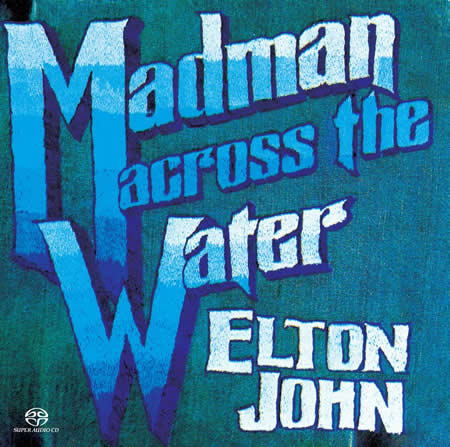

"Indian Sunset" is compellingly cinematic if you can ignore the stereotypical representation of an Indigenous warrior written by a white British dude with very little in the way of meaningful perspective or insight. It feels like a classic, near-masterpiece to me. This album almost gets a five from me for its first two tracks alone. The record loses a little steam with "Razor Face" but bounces back with the title track, which is heavier and more atmospheric than I expected. And then Elton outdoes himself and goes straight into "Levon". Over 2:30 to get to the chorus! Unreal restraint and talent on display here. "Tiny Dancer" might have one of the greatest build ups of all time. I can’t listen to the line “Peace comes with a bullet hole” without a tissue. Taupin shines (“Is it in your conscience that you’re after another glimpse of the madman across the water?”), while Sir Elton’s melody and vocal performance scares the hell out of you.Īnd the social justice sensitivity of the sad and angry ballad “Indian Sunset” moves to tears (even if it’s tainted by a historically uninformed and anachronistic confusion of the plights of Iroquois, Sioux, and Apache cultures).

In terms of psychological horror, the title track “Madman across the Water” is profoundly angry, and fittingly under appreciated. The melodies of “Tiny Dancer”and “Levon” will live forever. Sequences of cascading and unanticipated intervals, always leading home to the anxiously expected tonic, frequently supplied only by the instrumentals. Then also filter out the chords and background musicians, and you should touch greatness. As an experiment, try to listen to just the melody, while filtering out the vocal trills, runs, and stylings. But his piano/vocal composition, dynamic synchronization, and blend are magical. He never developed his left hand, and his right hand is chord-heavy. If it weren’t for a couple of clunkers (“Razor Face” and “Rotten Peaches”), this album could’ve been a classic.Įlton John has characterized himself as a pianist: “I’m a pounder.” He’s right. This one of the earliest albums where the mixing board becomes a musical instrument on its own (the producer, Gus Dudgeon, knew exactly when to ‘tell’ the piano to sit back and let the backing musicians take over).

Madman across the water lyrics portable#
Long familiarity with this album, which I owned on cassette tape and listened to endlessly on a mono portable deck.īernie Taupin wrote the excellent lyrics, Elton John composed brilliant melodies and performed the songs with passion, while producer, arrangers, studio musicians, choir, orchestra, and engineers put together one fine collaborative audio production. “Madman across the Water” by Elton John (1971) On 10 June 2022, the album was reissued as a deluxe edition for its 50th anniversary, featuring 18 unreleased tracks including demos, outtakes and alternate takes, as well as a 40-page book detailing the album's creation with notes from John and Taupin. The album was included in Robert Dimery's 1001 Albums You Must Hear Before You Die. The album was certified gold in February 1972, followed by platinum in March 1993, and 2× platinum in August 1998 by the RIAA. There were two singles released from Madman Across the Water, "Levon" and "Tiny Dancer". Yes band keyboardist Rick Wakeman plays Hammond organ on 3 songs. The album contains nine tracks, each composed and performed by John and with lyrics written by songwriting partner Bernie Taupin. The album was his third album to be released in 1971, at which point John had been rising to prominence as a popular music artist. Madman Across the Water is the fourth studio album by English musician Elton John, released in 1971 through DJM and Uni Records.


 0 kommentar(er)
0 kommentar(er)
